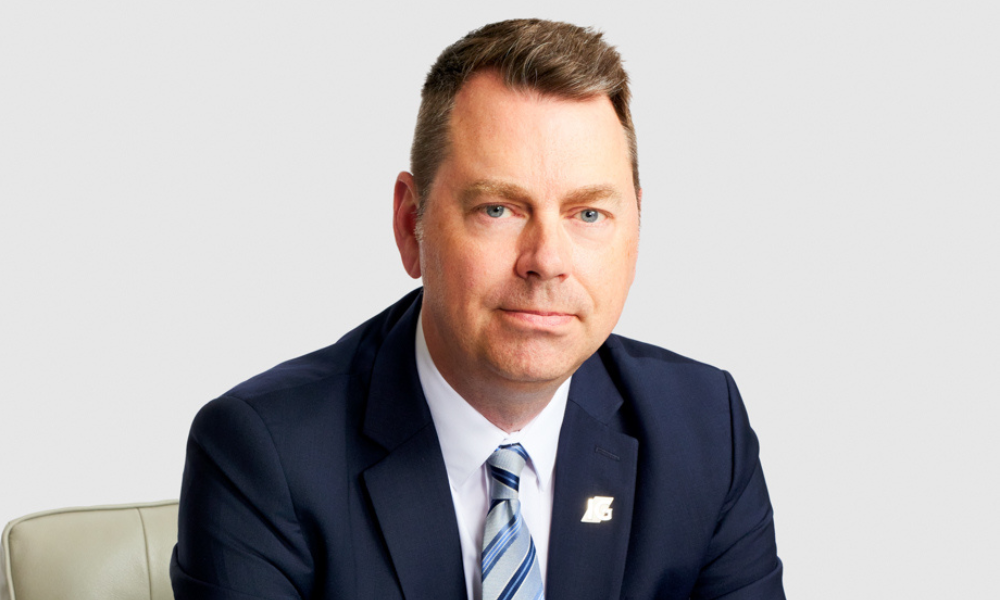Chief Investment Strategist outlines how cross-border tensions and internal politics could impact a return to pre-GFC monetary conditions

The turbulence, volatility, and interest rate whipsaws of the past five years may have just put us back into a normal monetary environment. That’s the view of Philip Petursson, Chief Investment Strategist at IG Wealth Management. He believes that we have finally entered a monetary environment that moves away from the ‘abnormal’ zero interest rate policy that held sway between the great financial crisis (GFC) and 2022. A ‘normal’ environment, he explains, is one where inflation runs at around three per cent for a long-term historical average, and central bank overnight rates sit around one per cent above that inflation rate.
While monetary policy may have returned to normal, politics in North America seem like they’re anything but. With Donald Trump set to be inaugurated as President on Monday January 20th, with threats of tariffs and noise about annexing Canada, there are potential political risks to this more normal monetary environment. Petursson talked through how those risks might manifest and what a mixture of normalizing monetary conditions and political challenges could mean for Canadian advisors.
“The incoming US administration is what we would call the known unknown. Nobody knows if what has been said was said with sincerity. We don’t know if they’re going to put a 25 per cent tariff on everything or if it’s just an off the cuff remark,” Petursson says. “The challenge in this environment is that we’re not dealing with a predictable administration and that does weigh on markets a little bit…So we have to return to the fundamentals of what companies do: generating profits. Even in periods of adversity good companies find a way to generate profits.”
The political uncertainty facing Canadian advisors and their clients doesn’t just come from south of the border. Petursson explains that the recent prorogation of parliament and Prime Minister Trudeau’s announced resignation pending the selection of a new Liberal Party leader has introduced a greater degree of uncertainty for Canada.
While the threat of tariffs and uncertainty around the state of Canadian governance could introduce some headwinds for investors, Petursson accepts that some of the current political environment could feed into a more normal balance between inflation and interest rates. One of the forces that kept prices low following the GFC was globalization — along with the rise of ecommerce. Trump and many other world leaders have reversed course on globalization somewhat which may result in a higher resting inflation rate.
Tariffs are part of that de-globalization policy being pursued by the President Elect and their imposition could shock equity markets somewhat. Petursson looks to the past for guidance. He notes that President Trump imposed tariffs on Canadian goods once before, in 2018 during his first term. He notes that while we saw a small shock on both the S&P 500 and the TSX there was a fairly quick recovery. Moreover, the S&P 500 was impacted more heavily and for longer.
Petursson says that a 25 per cent tariff would be quite negative for US and Canadian markets, enough that he would revise his 2025 market outlook, which offers an otherwise favourable view of returns for the year. He believes, though, that 25 per cent blanket tariffs are not the likely outcome and that the restrained tariffs we saw in 2018 may be more of an indicator of where President Trump might go with his Canadian trade policy.
Looking internally at US monetary policy, there has been some speculation that the more inflationary aspects of Trump’s proposed policies might mean the US Federal Reserve slows down its interest rate cuts. Petursson believes, however, that the Fed will continue to cut in 2025 until it hits a terminal rate of around four per cent. That is slower than the market initially priced in a year ago, but does reflect a degree of continued easing.
For some advisors and investors looking at a normalizing monetary environment, it might occur to them that we’ve seen some very positive years in terms of total returns during abnormal monetary conditions. Petursson cautions against looking backwards, especially after only two short years of very positive returns in US equities. There is an argument, he says, for taking long-term averages over those calendar year returns as a guide for where we may be going in this more normal environment. Through it all, he sees politics as a risk that advisors will have to navigate, but one that he believes they can if they focus on company fundamentals.
“I think the trickiest thing for investors this year is going to be navigating the political uncertainty. But what we need to remember is companies continue to find ways of generating profits for shareholders, and they will do so in any political environment,” Petursson says. “They'll continue to look for new ways to make money in various markets and political regimes and so on. So that's what we have to keep in mind right now, because Trump is is so much in front of us, it can skew our views on the markets, and that shouldn't be the case. You know, we need to hold fast on our on our processes. Hold fast on our the fundamental work and you know, don't ignore the political potential to kind of rock the boat, but don't base your investment decisions solely on that.”


